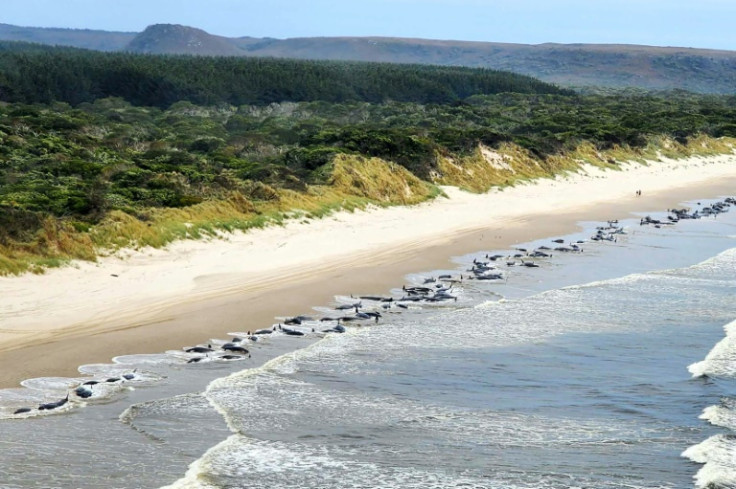Experts blame climate crisis for mass stranding of whales on Tasmanian beach
The exact cause of the mass stranding is still unknown although it is becoming a common occurrence in the region.
More than 200 whales were found stranded on a remote coast of Australia's island state of Tasmania earlier this week.
Even though half the pod of 230 whales were alive when they were discovered near Macquarie Harbour, only 35 have survived. The experts believe that the stranding may have been caused by the climate crisis. They believe that the whales were forced out of their natural habitat.
Griffith University marine scientist Olaf Meynecke told Sky News that it was previously uncommon for sperm whales to wash ashore. He said that it could be because of warmer ocean temperatures.
Vanessa Pirotta, a wildlife scientist specialising in marine mammals, also attributed it to the climate crisis.
"The fact that we've seen similar species, the same time, in the same location, reoccurring in terms of stranding at that same spot might provide some sort of indication that there might be something environmental here," added Pirotta.
Meanwhile, the rescuers at Tasmania Parks and Wildlife Service are trying their best to save the remaining whales.
"We've triaged the animals yesterday as part of the preliminary assessment and we've identified those animals that had the best chance of survival of the approximately 230 that stranded. Today's focus will be on rescue and release operations," said Brendon Clark, the manager at the park.
This was the second mass stranding recorded in Tasmania within the span of a week. More than a dozen sperm whales were found dead on another beach. They are believed to be part of the same bachelor pod.
In 2020, Macquarie Harbour was the scene of Australia's largest-ever mass stranding. Around 470 long-finned pilot whales were found scattered along two sandbars and stuck in the shallow waters on the west coast of the island.
As seasonal migrations take place each year, pods as large as 1,000 whales and dolphins move across Australia and New Zealand. Researchers say each pod follows a leader. Being highly social species, these sea creatures form a strong social bond, which can cause them to follow a stray leader, causing entire groups to get beached.

© Copyright IBTimes 2025. All rights reserved.






















